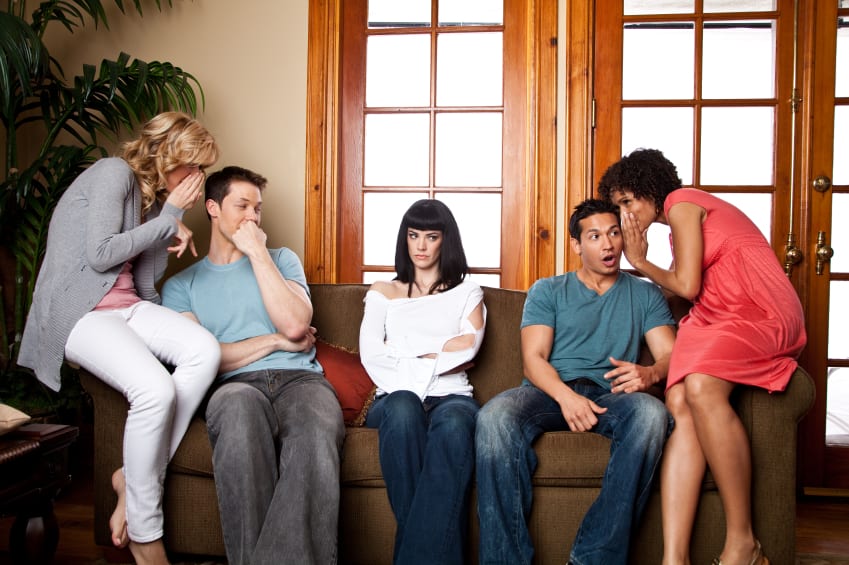“Lainie’s mom said Kira’s shorts are too short and she shouldn’t wear makeup to school.”
“Anil’s parents told him he’s lucky both his parents are Indian. His family feels sorry for Sarah because her dad is African American and her mom is White.”
“Jill told me it is too bad you’re Christian and Dad is Jewish. That’s why I don’t get a bat mitzvah.”
“Erin’s mom says Jordan is NEVER welcome in their house again.”
Parenting books never prepped me for a child coming home parroting these kind of perplexations. Parenting books focus on children. Some of the good ones even specialize in what your kids say and how to respond. But I don’t have a book for appropriate reactions, in today’s politically correct world, when parents hand down judgments at home in private family discussions that their kids then make very public at school.
Especially when the comments are so disparaging of individual children and different families’ values.
My first reaction is that these are children, give them a break! However, I give parents the benefit of the doubt, too. What happens is somewhat like the old parlor game of Telephone. I can imagine the conversations around the dinner table.
I can hear the parents’ good intentions: they are just trying to instill their own family values, and sometimes using other families as examples of what NOT to do.
As in:
“No, just because Kira wears those shorts doesn’t mean you can. In this family, girls don’t wear bootie shorts or makeup to school.”
“Mommy and Daddy’s families pick marriages for each other, Anil. It matters to us that you marry someone of the same culture and religion.”
“Jill, not every one has a bat mitzvah especially if the mom in the family isn’t Jewish.”
“This is why you can’t have Jordan over again: good behavior in other people’s houses is an important sign of respect.”
And actually, I am one of the offenders in this case. After a boy sassed me about the radio station playing in my car, fought back when I asked him to buckle his seatbelt, and then broke a large light fixture in my basement (without telling me or apologizing), I criticized him at home, in a moment of pique.
It was only later that I realized my daughter quoted me at school, her friends repeated what I’d said on the playground, and feelings got hurt.
What are the etiquette rules in this gossipy murk?
- Tell the teacher? Jeez, I hope they have better things to do – like teach long division.
- Call the parent and say, “My daughter said her friend said that your daughter said she dresses like a slut?”
- Stop a mom at the potluck and confess, “I’m so sorry I said that terrible thing about your son’s destroying my rec room and my daughter told all 23 classmates, making everything one hundred times worse?”
- Send a mass email: “Please, could everyone stop calling my daughter spoiled because she is the only one in class who has an iPhone?”
The first thing I did was clean up my own backyard. I’ve come to realize that even my most innocent, cherished parenting wisdom, when broadcast by a 12-year-old in the school cafeteria, can sound catty and sometimes downright prejudiced. In trying to explain my family values to my kids, by accident I slam others. ‘Nuff said. I’ve learned my lesson. No more.
But I’m still at a loss on how to curtail other parents, or elucidate to my kids why parents gossiping about their kids’ friends is wrong. The problem is too subtle. It’s not bullying, it’s not sexting…it’s just plain old-fashioned sniping.
The hardest task is deconstructing what’s going on in ways kids can understand – without appearing to criticize the adult in question. Adults are authority figures in their lives. They respect Lainie’s mom. They listen to what she says.
How do I explain that sometimes adults make mistakes too? Ever try clarifying to a nine-year-old what it means to take something with a grain of salt?
“Salt, Mom? What does that have to do with Jessica wearing a thong?”
That’s when you really need one of those parenting books.





